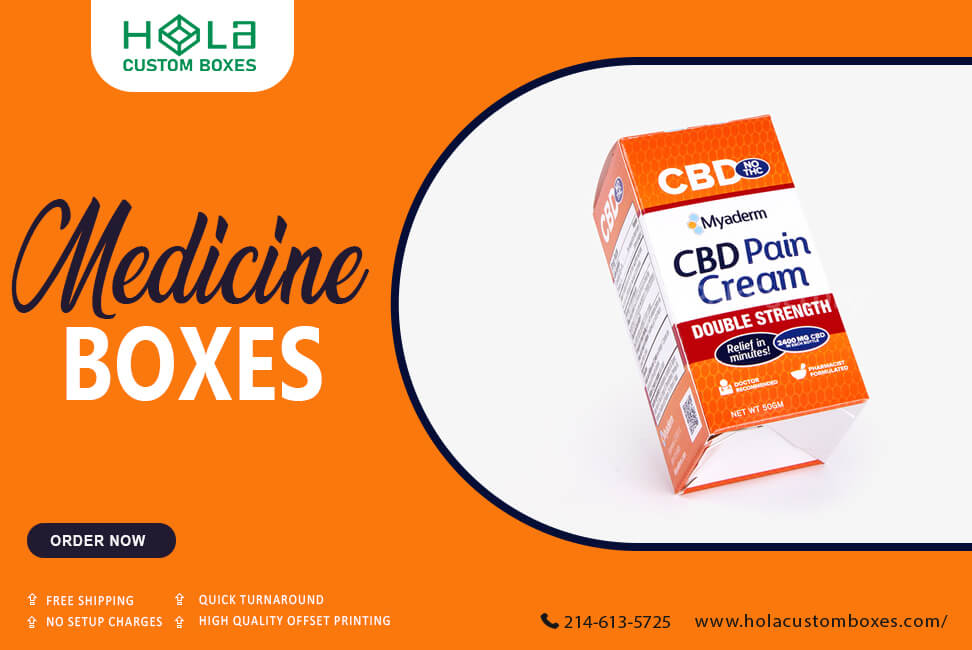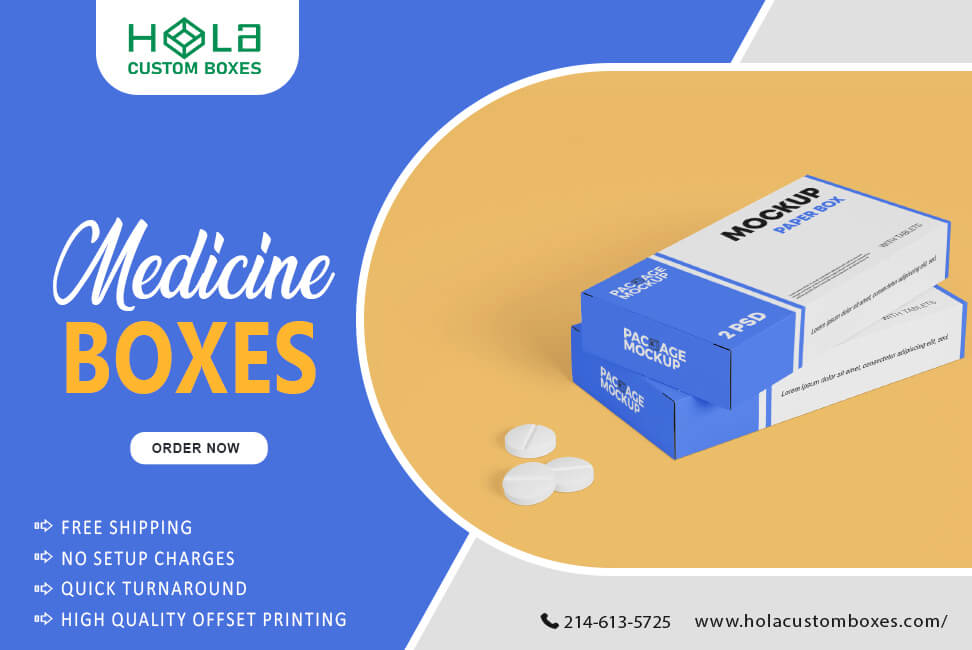How to Create Custom Pharmaceutical Packaging Solutions
2026-01-14 23:18:47.jpg)
When creating custom pharmaceutical packaging solutions, focus on specific product requirements and regulatory standards. Understanding the product's fragility and environmental sensitivities is vital, as are child-resistant and tamper-evident features for user safety. Selecting compliant materials is just the beginning. Regular design assessments are pivotal to keep pace with evolving regulations and market demands. What considerations should you prioritize next to guarantee both compliance and user appeal?
Main Points
- Conduct thorough discussions with clients to understand their specific product characteristics and unique packaging needs.
- Ensure compliance with FDA guidelines and ISO certifications throughout the design and material selection process.
- Incorporate essential safety features, such as child-resistant packaging and tamper-evident seals, to protect consumers.
- Utilize sustainable materials and minimalist designs to reduce environmental impact and align with industry trends.
- Implement continuous improvement strategies by collecting feedback and analyzing market trends to refine packaging solutions.
Understanding Custom Packaging Needs for the Pharmaceutical Industry
When you plunge into the world of custom pharmaceutical packaging, understanding your specific needs is crucial for developing effective solutions. Engaging in thorough discussions with clients allows you to accurately identify unique requirements.
Evaluating product characteristics, such as fragility and sensitivity to light or temperature, helps you design packaging that maintains product integrity. Compliance with regulatory standards, such as those from the FDA and ISO, is non-negotiable for safety and effectiveness.
Furthermore, prioritize end-user convenience by incorporating features such as child-resistant packaging and tamper-evident seals. Regularly reviewing designs keeps you aligned with evolving compliance standards and enhances market appeal through innovative, sustainable practices. Additionally, consider incorporating customization options that improve product visibility and differentiate your offerings in a competitive marketplace.
Interactive Packaging for a Memorable Unboxing
.jpg)
A truly unforgettable unboxing experience comes from more than just the product itself—it’s about how it’s revealed. Interactive packaging can transform a simple box into an engaging experience. Imagine opening a custom action figure package with hidden compartments, surprise accessories, or unique reveals built into the design. This interactive element not only protects the figure but also builds excitement, anticipation, and joy, making the unboxing moment one that collectors will remember and cherish.
Limited Edition Packaging to Elevate Value
Limited edition packaging adds exclusivity and collectibility to action figures. With specially designed boxes featuring unique artwork, premium finishes, or rare design elements, collectors instantly feel that they own something extraordinary. This thoughtful presentation enhances the item's perceived value and makes the unboxing feel personal and special. When extra effort is put into packaging, it elevates the entire experience, turning an action figure into a treasured collectible without compromising its authenticity or integrity.
Designing Pharmaceutical Packaging for Compliance and Safety
Designing pharmaceutical packaging for compliance and safety requires meticulous attention to regulatory standards and material selection to protect product integrity.
You must choose materials that comply with industry regulations, incorporate child-resistant features, and create barriers against external factors.
Select moisture-resistant, air-tight materials for stability.
Integrate child-resistant designs to prevent accidental ingestion.
Guarantee user-friendly packaging that aligns with health authority guidelines.
Regularly review and update your designs to reflect evolving regulations, keeping safety at the forefront.
Prioritizing these aspects not only enhances product protection but also builds trust with end users.
Implementing Sustainable Packaging Solutions For Pharmaceutical Products

As the pharmaceutical industry increasingly emphasizes sustainability, implementing eco-friendly packaging solutions becomes essential for maintaining compliance and minimizing environmental impact.
Start by utilizing recyclable or biodegradable materials to reduce your ecological footprint.
Adopt minimalist designs that cut waste and energy consumption throughout the packaging lifecycle.
Collaborate with suppliers who practice sustainable sourcing and verify their certifications, such as the Forest Stewardship Council (FSC) for paper products.
Educate consumers on proper disposal and recycling methods to enhance responsible waste management.
Align your packaging solutions with industry sustainability trends to demonstrate your commitment to environmental stewardship while adhering to regulatory standards.
Additionally, consider using eco-friendly boxes which are designed for reuse and recycling, minimizing waste generation.
Leveraging Technology for Customization In Pharmaceutical Packaging
While the pharmaceutical industry faces increasing demands for customization, leveraging technology can streamline packaging solutions that meet diverse client needs.
By integrating advanced systems, you can achieve precision and efficiency in your processes.
Consider these approaches:
Use digital printing for on-demand variable-data production, reducing costs for smaller runs.
Incorporate automation technologies to enhance accuracy and minimize human error.
Invest in software solutions for tailored designs that comply with regulatory standards.
Innovative Packaging Solutions for Medical Products
Custom packaging solutions play an essential role in the medical products sector, where safety and compliance are paramount.
You can choose from options such as product boxes, luxury packaging, and tailored shipping solutions to meet specific pharmaceutical needs. With an extensive library of designs, you'll guarantee safe storage while enhancing aesthetic appeal.
Utilize materials such as paperboard, corrugated, and rigid formats, with custom sizes to fit your products perfectly. Incorporate innovative protective features, such as eco-friendly paper inserts and complex foam, to meet high-quality regulatory standards, all backed by the PakFactory promise of expert support in your pharmaceutical packaging decisions.
Protective and Medical Grade Packaging Options
Protective and medical-grade packaging options are vital for safeguarding life-saving pharmaceutical products throughout their lifecycle.
These solutions not only meet stringent regulatory standards but also guarantee product integrity during transportation and handling.
Consider these effective options:
Eco-friendly paper inserts for sustainable support
Complex foam inserts designed for product-specific cushioning
Custom designs featuring tamper-evidence and child-resistant mechanisms
PakFactory uses certified materials that comply with industry regulations, providing essential barriers against light, moisture, and oxygen to prevent degradation. Additionally, custom fold and assemble boxes offer versatility and cost-efficiency, making them an ideal choice for pharmaceutical packaging.
Prioritizing both protection and safety helps you deliver reliable pharmaceutical products to end-users.
Coating, Finishing, and Material Options for Pharmaceutical Packaging

Effective packaging goes beyond protection; it also involves the right coatings, finishes, and materials to guarantee pharmaceutical products meet regulatory standards while appealing to consumers.
Consider aqueous coatings for eco-friendliness, or UV coatings for quick production with a high-gloss finish. Soft-touch coatings add a tactile element, enhancing the user experience.
For durability, anti-scratch lamination protects against wear and tear.
Material choices include premium-grade bleached paperboard for quality printing, fully recycled CCNB for sustainability, or kraft options for a natural look.
Specialty papers like metallic and textured finishes can create unique packaging that stands out in a competitive market.
Printing Techniques and Service Support for Custom Packaging
When selecting the right printing techniques for pharmaceutical packaging, you'll find that various methods cater to specific production needs and quality standards.
Consider these options:
Offset Printing: Ideal for high-quality large runs, guaranteeing consistency.
Digital Printing: Cost-effective for smaller runs, eliminating plate costs.
UV Printing: Provides a fast-drying, glossy finish that enhances visual appeal.
Additionally, expect thorough service support throughout the process.
This includes consultation for package creation, design assistance for artwork, and prototype options for risk-free testing.
Tailored logistics guarantee timely delivery while maintaining regulatory compliance and quality standards, making your project seamless from start to finish.
Customer Feedback and Continuous Improvement in Packaging Solutions
In the fast-evolving pharmaceutical industry, understanding customer feedback is pivotal for refining packaging solutions. Regularly collecting and analyzing testimonials helps you identify trends in user satisfaction and areas needing improvement.
Proactive communication with clients fosters collaboration, allowing you to resolve issues swiftly and enhance designs based on real-world usage. Implementing a feedback loop guarantees that customer input directly influences design iterations, keeping your packaging compliant and user-friendly.
Moreover, using this data can lead to significant cost savings by pinpointing unnecessary features or materials, ultimately optimizing your packaging designs for greater efficiency and market effectiveness.
Conclusion
In summary, creating custom pharmaceutical packaging solutions requires a meticulous approach that prioritizes safety, compliance, and user needs. By understanding the unique characteristics of your products and incorporating child-resistant features, you can enhance protection and appeal. Embracing sustainable practices and leveraging technology will not only meet regulatory standards but also adapt to market demands. Regularly seeking customer feedback guarantees continuous improvement, allowing you to deliver packaging solutions that truly safeguard health while aligning with industry expectations.
